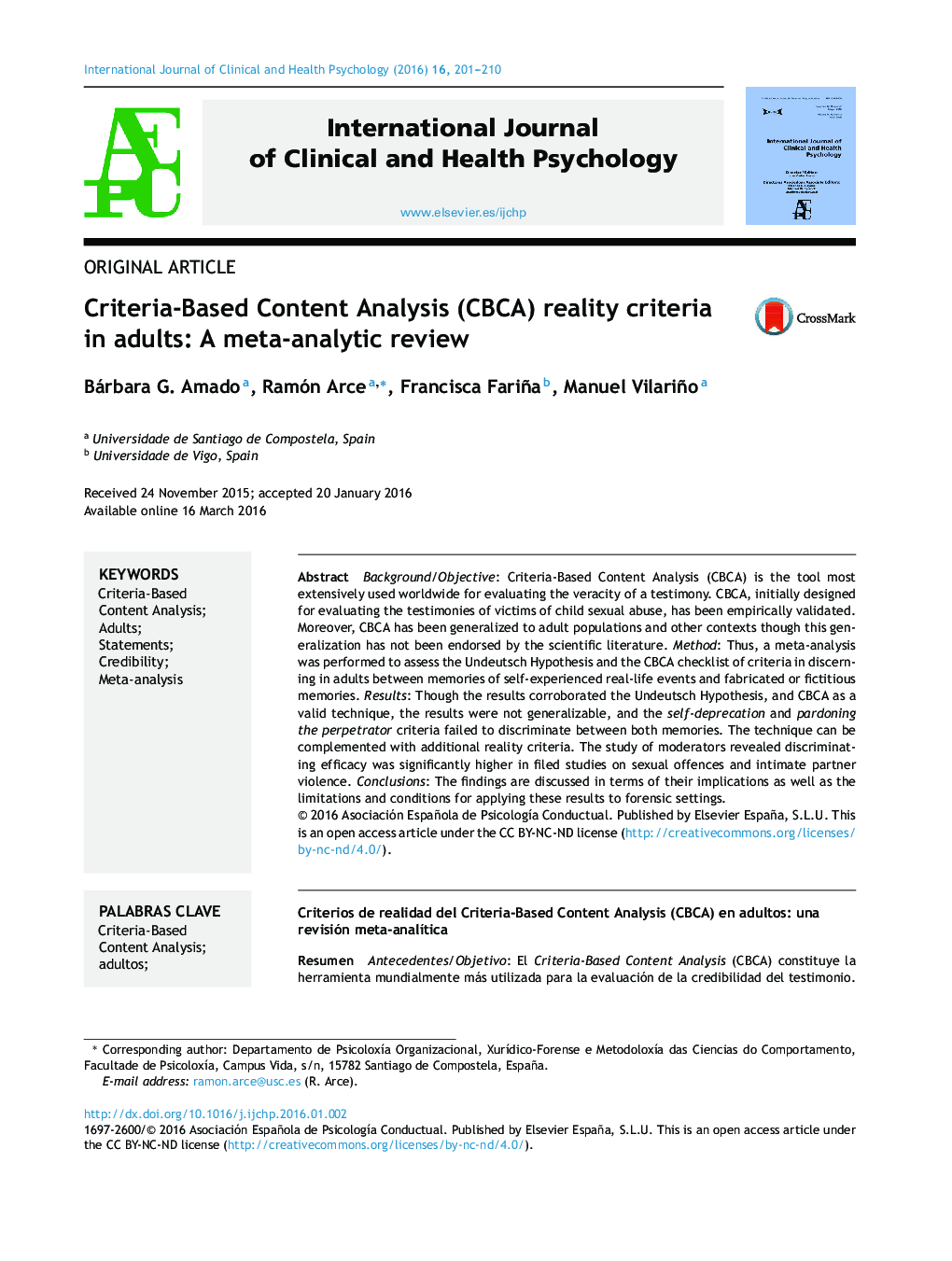| کد مقاله | کد نشریه | سال انتشار | مقاله انگلیسی | نسخه تمام متن |
|---|---|---|---|---|
| 879926 | 1471342 | 2016 | 10 صفحه PDF | دانلود رایگان |
Background/Objective: Criteria-Based Content Analysis (CBCA) is the tool most extensively used worldwide for evaluating the veracity of a testimony. CBCA, initially designed for evaluating the testimonies of victims of child sexual abuse, has been empirically validated. Moreover, CBCA has been generalized to adult populations and other contexts though this generalization has not been endorsed by the scientific literature. Method: Thus, a meta-analysis was performed to assess the Undeutsch Hypothesis and the CBCA checklist of criteria in discerning in adults between memories of self-experienced real-life events and fabricated or fictitious memories. Results: Though the results corroborated the Undeutsch Hypothesis, and CBCA as a valid technique, the results were not generalizable, and the self-deprecation and pardoning the perpetrator criteria failed to discriminate between both memories. The technique can be complemented with additional reality criteria. The study of moderators revealed discriminating efficacy was significantly higher in filed studies on sexual offences and intimate partner violence. Conclusions: The findings are discussed in terms of their implications as well as the limitations and conditions for applying these results to forensic settings.
ResumenAntecedentes/Objetivo: El Criteria-Based Content Analysis (CBCA) constituye la herramienta mundialmente más utilizada para la evaluación de la credibilidad del testimonio. Originalmente fue creado para testimonios de menores víctimas de abuso sexual, gozando de amparo científico. Sin embargo, se ha generalizado su práctica a poblaciones de adultos y otros contextos sin un aval de la literatura para tal generalización. Método: Por ello, nos planteamos una revisión meta-analítica con el objetivo de contrastar la Hipótesis Undeutsch y los criterios de realidad del CBCA para conocer su potencial capacidad discriminativa entre memorias de eventos auto-experimentados y fabricados en adultos. Resultados: Los resultados confirman la hipótesis Undeutsch y validan el CBCA como técnica. No obstante, los resultados no son generalizables y los criterios auto-desaprobación y perdón al autor del delito no discriminan entre ambas memorias. Además, se encontró que la técnica puede ser complementada con criterios adicionales de realidad. El estudio de moderadores mostró que la eficacia discriminativa era significativamente superior en estudios de campo en casos de violencia sexual y de género. Conclusiones: Se discute la utilidad, así como las limitaciones y condiciones para la transferencia de estos resultados a la práctica forense.
Journal: International Journal of Clinical and Health Psychology - Volume 16, Issue 2, May–August 2016, Pages 201–210
